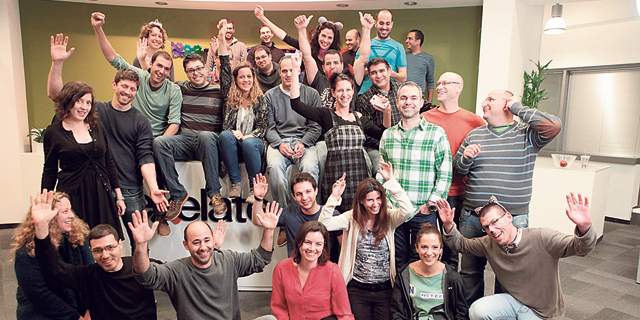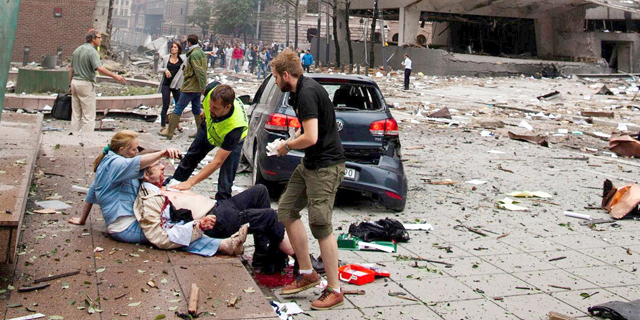
From Military-Themed Summer Camps to Israel's Obsession With Giant Trash Bins: Our Best 2019 Magazine Articles
This year, CTech's writers tackled issues such as digital immortality and Israel's shifting socioeconomic markers to share insights into local culture and economy. Here is a chance to look back at some of our best—and most-read—articles
After death, there is the bot. Journalist and author Andrew Kaplan is the first guinea pig of HereAfter, a startup that aims to preserve the dead as virtual avatars, raising questions about what makes a person who they are, the changing approach to grief, and humanity's desire to document its loved ones—and itself. Read the full story
Fun and games and shooting down enemy planes. In a room located inside a central Israeli movie theater complex, kids in flight suits are attending a briefing. Their mission today includes flying south, over the Israeli cities of Ashkelon and Kiryat Gat, a course they will have to chart themselves. Their vessel is a state-of-the-art F16 fighter jet simulator developed by American aerospace manufacturer Lockheed Martin. In Israel, the new trend in summertime fun is military-themed summer camps and courses, with activities ranging from recreating famous air battles in an F16 simulator to countering military cyber attacks. Read the full story Rising patriotism in China has rekindled sports brand Li-Ning's flame. Those looking to make a killing on the stock market should look no further than Chinese sportswear and footwear brand Li-Ning. The Chinese sportswear company saw its stock jump 200% since the beginning of the year as more and more Chinese consumers turn to home-grown brands. Can it take on Nike and Adidas on its home turf? Read the full story
Telegrass' marijuana operation: method, testimonies, and question marks. In March, Israel Police arrested 42 people suspected of holding top management positions in Israeli drug distribution network Telegrass, which operated via encrypted instant messaging app Telegram. Read the full story
In Israel, millionaires are the new normal. Israel model 2019 is full of millionaires. The country, which has a population of just under 9 million, has more millionaires now than at any other point in its history. With the estimated personal wealth in Israel going up by 45% in the last decade, Israelis are now a premier target for global wealth management bankers. Read more
Breathing life into yesterday's news. The digitization of the archive of the Israel Broadcasting Authority, one of the world's largest digitization projects to date, is currently underway in a former Jerusalem brothel. Read more
From Russia, with coding skills. A generation after the fall of the Soviet Union propelled a large wave of immigration to Israel, Soviet-born entrepreneurs are now stepping to the forefront of the Israeli tech industry. The late 1980s and early 1990s saw nearly one million Soviet-born Jews emigrate to Israel. In the process, many educated and skilled workers—among them scientists, doctors, and engineers—had to take up menial, blue-collar jobs. Now, the people who led the largest Israeli tech exits and funding rounds of the year are the same people who saw their engineer parents employed as security guards and cleaning personnel. Read more "Googling" the next terror attack. The search engine developed by Israeli web intelligence startup Cobwebs is designed to help law enforcement agencies scour the internet—including the dark and deep web—for potentially illegal or terrorist activity. Read more
Real estate developers have turned this historic Tel Aviv neighborhood into a hotel lobby. Flanked between Tel Aviv's fragrant, boisterous Carmel Market and the bustling, smog-filled Allenby Street, Kerem HaTeimanim, a historic central Tel Aviv neighborhood, has become one of the city's most popular destinations on Airbnb. Using adjectives like "authentic" and "romantic," small-time Airbnb hosts and vacation rental businesses are luring tourists in, and, inadvertently, pushing neighborhood old-timers out. Read the full story
In Israel, more waste means bigger trash bins. Producing 20% more waste than the OECD average, Israelis have developed a new obsession with big, high end, smart garbage cans. Read the full story









